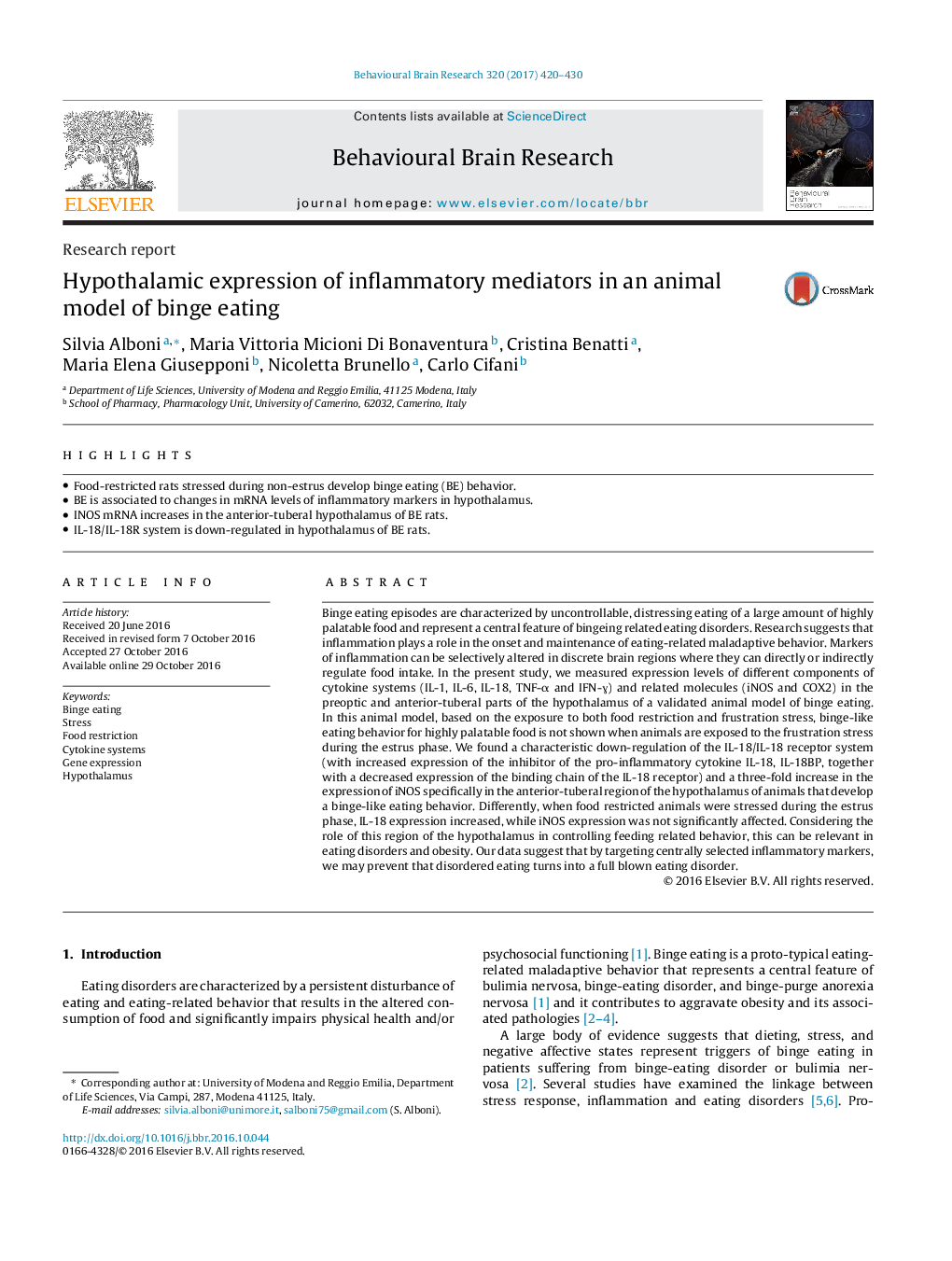| Article ID | Journal | Published Year | Pages | File Type |
|---|---|---|---|---|
| 5735688 | Behavioural Brain Research | 2017 | 11 Pages |
â¢Food-restricted rats stressed during non-estrus develop binge eating (BE) behavior.â¢BE is associated to changes in mRNA levels of inflammatory markers in hypothalamus.â¢INOS mRNA increases in the anterior-tuberal hypothalamus of BE rats.â¢IL-18/IL-18R system is down-regulated in hypothalamus of BE rats.
Binge eating episodes are characterized by uncontrollable, distressing eating of a large amount of highly palatable food and represent a central feature of bingeing related eating disorders. Research suggests that inflammation plays a role in the onset and maintenance of eating-related maladaptive behavior. Markers of inflammation can be selectively altered in discrete brain regions where they can directly or indirectly regulate food intake. In the present study, we measured expression levels of different components of cytokine systems (IL-1, IL-6, IL-18, TNF-α and IFN-ɣ) and related molecules (iNOS and COX2) in the preoptic and anterior-tuberal parts of the hypothalamus of a validated animal model of binge eating. In this animal model, based on the exposure to both food restriction and frustration stress, binge-like eating behavior for highly palatable food is not shown when animals are exposed to the frustration stress during the estrus phase. We found a characteristic down-regulation of the IL-18/IL-18 receptor system (with increased expression of the inhibitor of the pro-inflammatory cytokine IL-18, IL-18BP, together with a decreased expression of the binding chain of the IL-18 receptor) and a three-fold increase in the expression of iNOS specifically in the anterior-tuberal region of the hypothalamus of animals that develop a binge-like eating behavior. Differently, when food restricted animals were stressed during the estrus phase, IL-18 expression increased, while iNOS expression was not significantly affected. Considering the role of this region of the hypothalamus in controlling feeding related behavior, this can be relevant in eating disorders and obesity. Our data suggest that by targeting centrally selected inflammatory markers, we may prevent that disordered eating turns into a full blown eating disorder.
